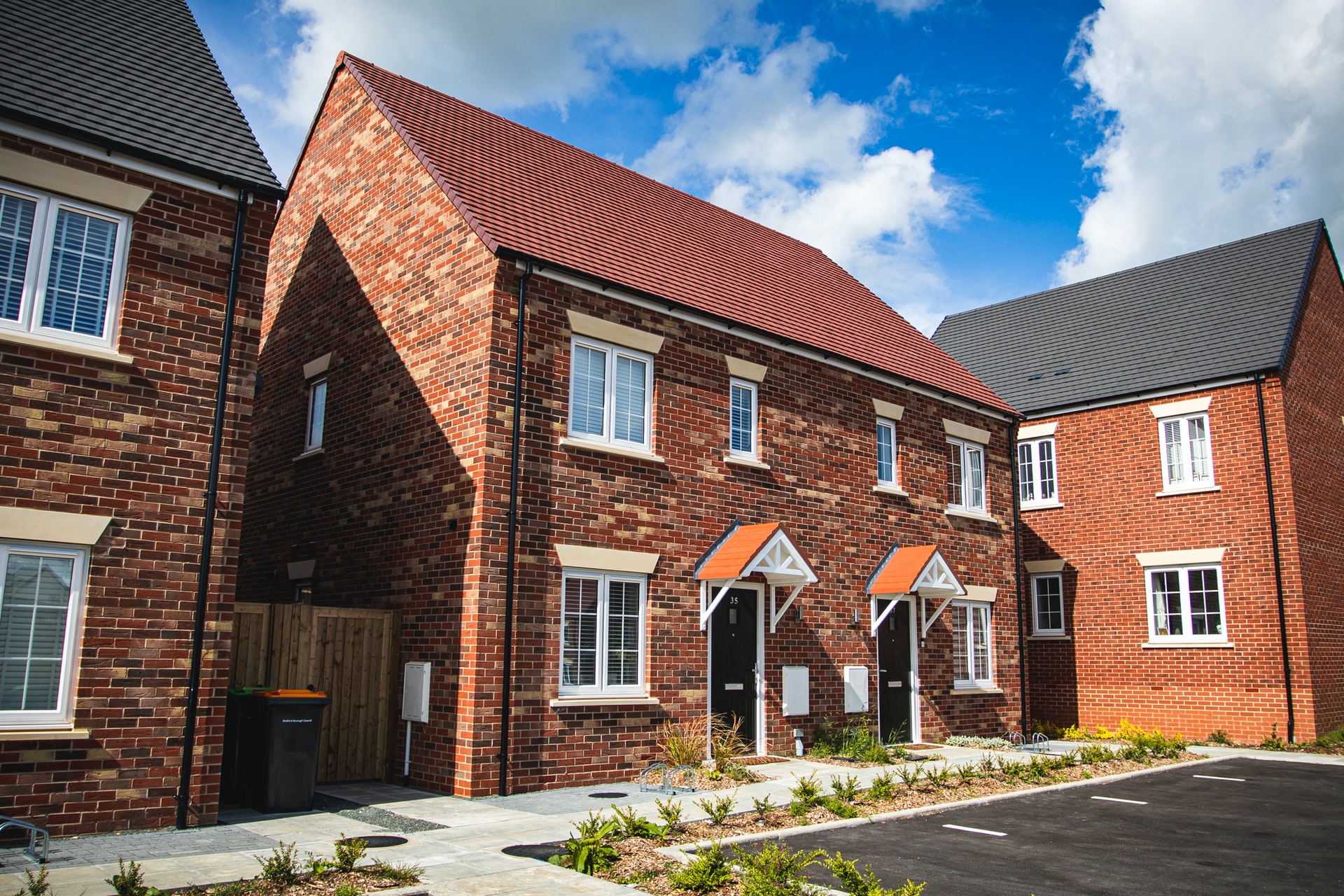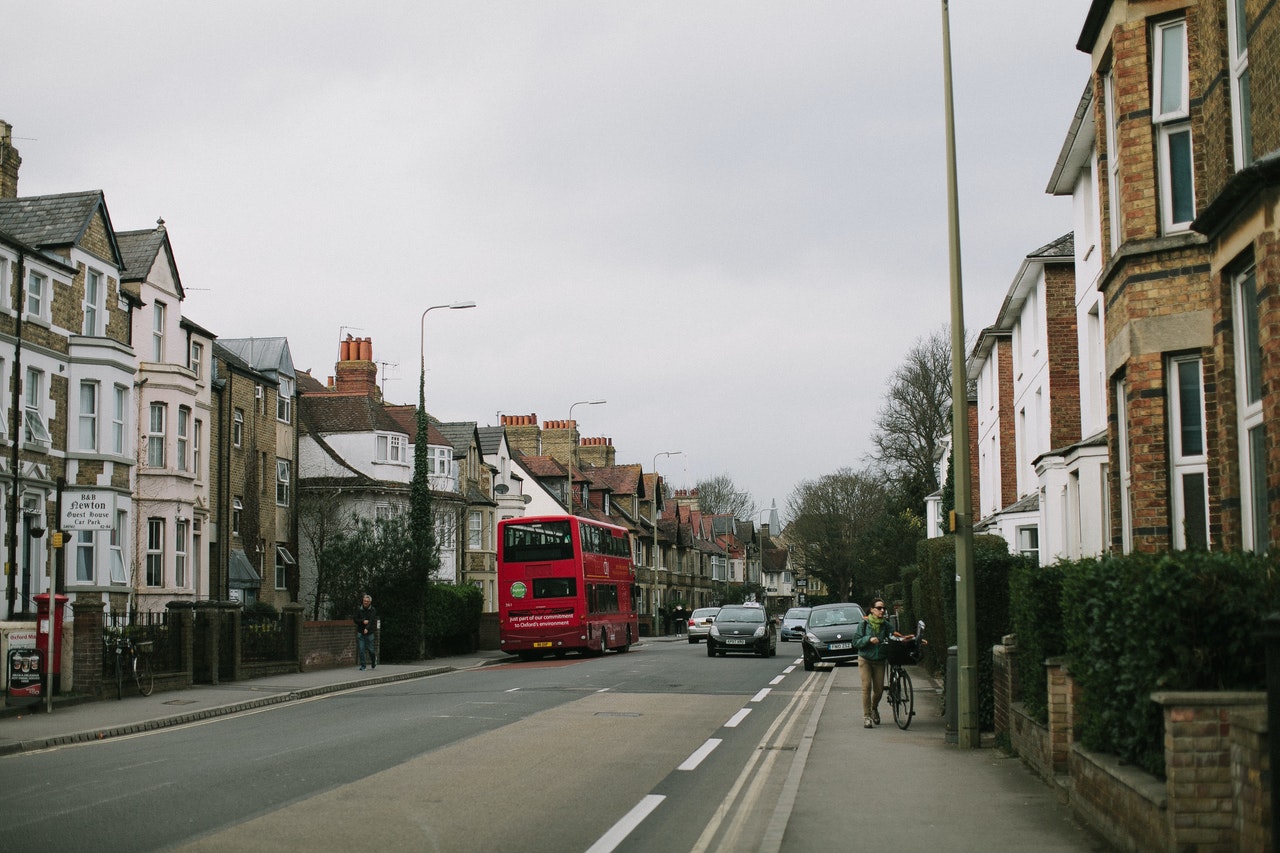A mortgage in principle is an indicator from a mortgage provider of how much money they might be willing to lend you. You might also see this referred to as ‘an agreement in principle’ (AIP), ‘a decision in principle’ (DIP), or ‘a mortgage promise’.
Although it isn’t a binding agreement, there are plenty of benefits to getting a mortgage in principle when you’re house hunting, especially if you’re a first-time buyer or are unsure of your budget.
Read on to find out more about how to apply for a mortgage in principle, when you need one, and the pros and cons of getting one at various points in your house-hunting journey.
What Is a Mortgage in Principle?
Think of a mortgage in principle as a trial run for your full mortgage application. Unlike an actual mortgage offer, it isn’t a firm agreement to lend you the full amount of money and you won’t need to provide the same depth of information to apply for one.
What an agreement in principle does do is give you an idea of how much money a mortgage provider might be willing to lend you.
A mortgage in principle tends to be a more accurate indicator of what you could borrow than the simple mortgage calculators found on most bank or building society websites. This is because it takes into account your actual financial situation, instead of just your income.
It is also much quicker to get a mortgage in principle than to apply for an actual mortgage, and you don’t need to have had an offer accepted on a property either.
Why Apply for a Mortgage in Principle?
Although it isn’t 100% necessary to get a mortgage in principle, having one can make your house hunt go more smoothly, especially if you’re a first-time buyer.
1. Know Your Budget
Firstly, having an agreement in principle gives you a fairly good estimate of your total budget, which might be more or less than you expected from basic affordability calculators.
There are a lot of factors that lenders consider when you apply for a mortgage, including your income, your outgoings, any debt, the size of your deposit, and the length of the mortgage term.
Although a mortgage agreement in principle doesn’t dive as deeply into your finances as an actual mortgage application, it does consider your specific financial situation and gives you an official estimate of how much you could borrow.
2. Be Taken Seriously as a Buyer
Once you have a mortgage in principle, estate agents are more likely to consider you a serious buyer. Some estate agents will want to see your agreement in principle before they’ll let you book a viewing, especially if you are a first-time buyer.
When you put an offer in, estate agents will want to know you can afford the amount you’ve offered. A mortgage in principle is a good indication that you can borrow enough to cover the cost of the property.
3. Reduce the Likelihood of a Mortgage Rejection
A mortgage in principle isn’t a guarantee that the mortgage provider will lend you the full amount of money. However, it does give you a more realistic idea of what you might be able to borrow, which reduces the chances that you’ll apply for too much and be rejected.
When you apply for a mortgage, lenders will do a hard credit check, which will show up on your credit record.
On its own, this shouldn’t impact your credit score. However, multiple hard credit searches in a short period can make mortgage providers less likely to lend to you. So, you want to avoid having a mortgage application rejected if possible.

Will a Mortgage Agreement in Principle Affect My Credit Score?
Most lenders only do a soft credit check when you apply for a mortgage in principle, which doesn’t leave a mark on your credit record. As a result, an agreement in principle shouldn’t impact your credit score, even if you apply to more than one lender.
However, it is worth double-checking that the lender you are considering does soft checks instead of hard checks. If you are working with a mortgage broker, this is something they’ll be able to advise you on too.
When Should I Apply for an Agreement in Principle?
In most cases, you’ll want to apply for an agreement in principle as soon as you are ready to start your house hunt. Having the agreement already in place means you can demonstrate to estate agents and sellers that you are a serious buyer.
In a competitive housing market, having a mortgage in principle in place as soon as you start your search can give you an edge over other house hunters.
If you are selling a property and buying a new home, you might prefer to wait until you’ve accepted an offer on your existing property before you apply for an agreement in principle. This means you’ll know how much of a deposit you have, making it easier to estimate how much you’ll need to borrow.
Bear in mind too that your mortgage in principle will eventually expire. If you think it will be a while before you are ready to put an offer in on a property, you might want to wait on applying.
How Do I Get a Mortgage in Principle?
To get a mortgage in principle, you’ll need to apply to a mortgage provider and give them some information so that they can assess how much you can afford to borrow.
There are two ways to do this. The first is to apply to a lender directly and the second is to go via a mortgage broker.
The option you choose will depend on whether you intend to work with a broker for your actual mortgage application. If you do, they’ll usually handle the agreement in principle application for you as part of their services.
Mortgage brokers have in-depth knowledge of the different lenders and can help you narrow down who is most likely to lend you the amount you need, reducing your likelihood of being rejected. They have access to more deals than you’ll be able to find yourself via the high street or online.
A broker can also save you time – once you’ve provided all the information, they can apply for the mortgage in principle on your behalf and can quickly progress your mortgage application once you’ve had an offer accepted.
What Information Do I Need to Apply for a Mortgage in Principle?
Applying for a mortgage agreement in principle is less intensive than applying for an actual mortgage, but the potential lender will still want to see information about your income and outgoings.
At this stage, most lenders don’t need you to provide supporting documents – you’ll send these over when you apply for the mortgage itself. However, you will need to let them know:
- Your income and the income of anyone applying for the mortgage with you.
- Details of any other money you receive, like commissions, bonuses, pensions, and benefits.
- Whether you have any other debts, including credit cards, loans, and other mortgages.
- Where you’ve lived for the past three years.
- Details of other financial commitments, such as childcare, commuting costs, or car payments.
- How much money you want to borrow.
- The amount of money you can supply as a deposit.
Once you or your broker puts in the application, you should have the decision back within a day or two.

How Long Does an Agreement in Principle Last?
Sadly, a mortgage in principle does come with an expiry date. How long it is valid will depend on the lender, but most last 60-90 days. In some cases, the agreement in principle only lasts for 30 days, so check the small print carefully to make sure you know if you’ll need to reapply.
If you don’t have an offer accepted in time, you should be able to reapply for a mortgage in principle without too much difficulty, as long as nothing has changed about your financial situation.
However, it is important to be aware that you’ll need to check the validity of your agreement in principle if anything does change about your finances, even if it is still before the expiry date.
What Happens After a Mortgage in Principle?
Once you have your mortgage in principle in place, you can start booking viewings and visiting properties within your budget.
Some lenders will give you a certificate to officially confirm the mortgage in principle. This is useful to send to estate agents to show the budget you have available.
With luck, you’ll find a property you like before your agreement in principle expires. If you have an offer accepted, you can then make a start on your full mortgage application.
Even if you’ve had a decision in principle, the lender will still need to recheck that you meet their affordability criteria. They’ll also want to see supporting documents, so they can confirm that you gave them an accurate picture of your financial situation.
If you are working with a mortgage broker, they will guide you through the documents you need to provide and make the mortgage application on your behalf.
How Reliable Is a Mortgage in Principle?
A mortgage in principle is just an indication of how much you could borrow, not a firm agreement that the mortgage provider will actually lend you that much. You should treat it as an estimation of your likely budget.
Even if a lender suggests they would be able to give you a mortgage for a certain amount by issuing a decision in principle, they can still decline to lend to you once you’ve put in the full application. The agreement in principle isn’t binding – on them or on you.
The full mortgage application requires a hard credit check and may uncover details on your credit record that the soft check didn’t throw up. Lenders may notice details in your supporting documents that make them question whether you can afford to borrow the full amount. And the full mortgage application is tied to a specific property, so the mortgage provider might decide the property isn’t worth enough for them to lend the full money.
It is a good idea to work with a mortgage broker when you apply for your mortgage, even if your decision in principle indicates that you can borrow the amount you need. Brokers are experts in the mortgage market and can match you to a lender whose criteria you are likely to meet.

What Can Go Wrong with a Mortgage in Principle?
Even though an agreement in principle isn’t the same as a mortgage offer, you may still be turned down by lenders if you don’t meet their criteria.
However, this doesn’t mean that you won’t be able to get a mortgage at all – lenders all have different criteria, and another mortgage provider might be happy to lend you the money you need.
Common reasons that a mortgage in principle might be refused include:
- Your income is too low for the amount you want to borrow.
- Your LTV (loan-to-value) ratio is too high – in other words, the deposit you have available won’t cover a high enough percentage of the property’s value.
- The lender is concerned about your existing debt or other financial commitments.
- Your credit score is poor.
- You’ve recently changed jobs or are self-employed and don’t have 3 years plus of accounts to demonstrate income stability.
- You are too close to retirement age.
It’s worth finding out why your application was refused if you can, so you can address any issues.
Working with a broker also reduces the risk that lenders will reject your mortgage in principle application. Brokers have in-depth knowledge of the different lenders and their criteria.
Ready to Find Out How Much You Could Borrow?
As specialist mortgage brokers, we can help you find the perfect mortgage for you. We’ll help you decide on a lender and put in your application for a mortgage in principle so that you can start your hunt for the house of your dreams.
Explore our mortgage services and find out how we can guide you through the mortgage application process, or get in touch to speak to one of our expert advisors.
